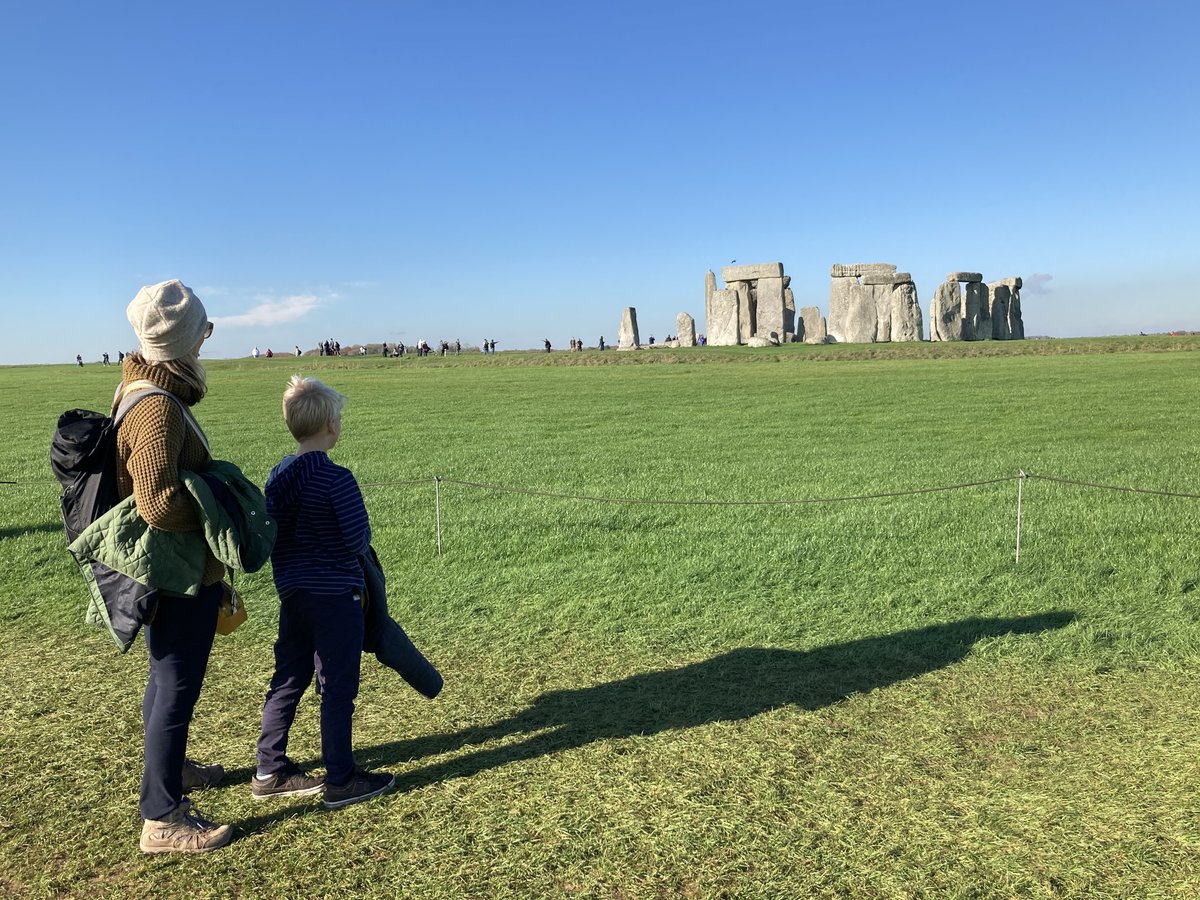Pause for thought: We are One Family

Recently, I visited the ancient monument of Stonehenge for the first time. It is tempting to think we have nothing to do with the Neolithic Stone Age people who erected this huge stone circle, as we message friends on smart phones, catch up with world news on TV screens, and eat exotic foods shipped from faraway places. But, in reality, our emotions and feelings, along with the challenges that we face, are not unique to us in the twenty-first century. As I stood on that Wiltshire plain, with countless tourists who had travelled from different corners of the world, I felt there was a deep connection between the primitive, ancient people who erected these sacred stones and us modern, ethnically-diverse pilgrims who were standing with our backs to the monument taking selfies. All division and differences seemed to melt away. It didn’t matter that the Neolithic people with their seemingly-primitive ways lacked modern education and technological know-how, just as it didn’t matter that the tourists had different skin complexions and were speaking different languages. Rather, something drew me to recognising a connection between all people, past and present, spanning different eras and different parts of the world. It is that same oneness with others that I feel as I approach the altar each week during the communion service.
Yet, with increasing tensions and divisions in today’s world, our common humanity is too often ignored and overlooked. Academics talk about the neo-tribalism of recent years. We are told that communities are breaking down, with fewer and fewer people knowing their neighbours, fewer people joining clubs and societies, and church attendance dropping sharply. On top of that, people, it seems, are becoming more focused on what separates us than what we have in common and so are banding into new tribes that are far more antagonistic to others than they have been in the past. Rather than local, inclusive communities, we are organising ourselves into new “in groups” and “out groups”. This is neo-tribalism – there’s “us” and “them”, and, of course, we are always right and they are always wrong, whether it’s atheism and belief, Labour and Conservative, Republican and Democrat, Leave and Remain, or pro-vaccine and anti-vaccine. As our natural longing for belonging has lessened in our local communities, these new polarised groupings have become toxic and destructive as we look down on those who look, dress, think, or behave differently from us.
For Christians, though, our faith is a sharp reminder that all these divisions are human constructs that mean very little in the light of God’s eternal kingdom. While we can celebrate our differences in his kingdom, it is ultimately a kingdom of unity, parity, and equality. This is one of the powerfully beautiful things about the meal that Jesus left us. When we walk up to receive communion, we are challenged to remember that we are all loved and equal – we have one Father and we are brothers and sisters under one kingship.
Some of those at the altar rail with us may be our close friends, but others may well irritate or annoy us. Some may have similar interests and attitudes to us, but others will be very different characters. Some will have overflowing bank accounts, but others will be having sleepless nights about the cost-of-living crisis. Some will be single, some will have partners, some will be married, some will be widowed. Some will be young, some will be old, some will have different colour complexion to ours, some will have a different sexuality. Some will have conflicting political views to ours, others will have never voted. Some will thrive in the company of people, but others will be desperate to get home for some peace and quiet. Some will be fit and healthy, but others will be battling with pain daily. Some will have a naturally joyful disposition, but others will be struggling simply to force a smile.
The altar is a reminder that, in God’s kingdom, every single person is both loved and equal, however wonderfully diverse and different we are from each other. This has huge implications on how we view ourselves, how we extend God’s love to the people we meet each day, and how we care for the world around us. Everything we say and do should reflect the wonderful fact that we are one in Jesus. We are one family. We are one.
Revd Canon Dr Trystan Owain Hughes